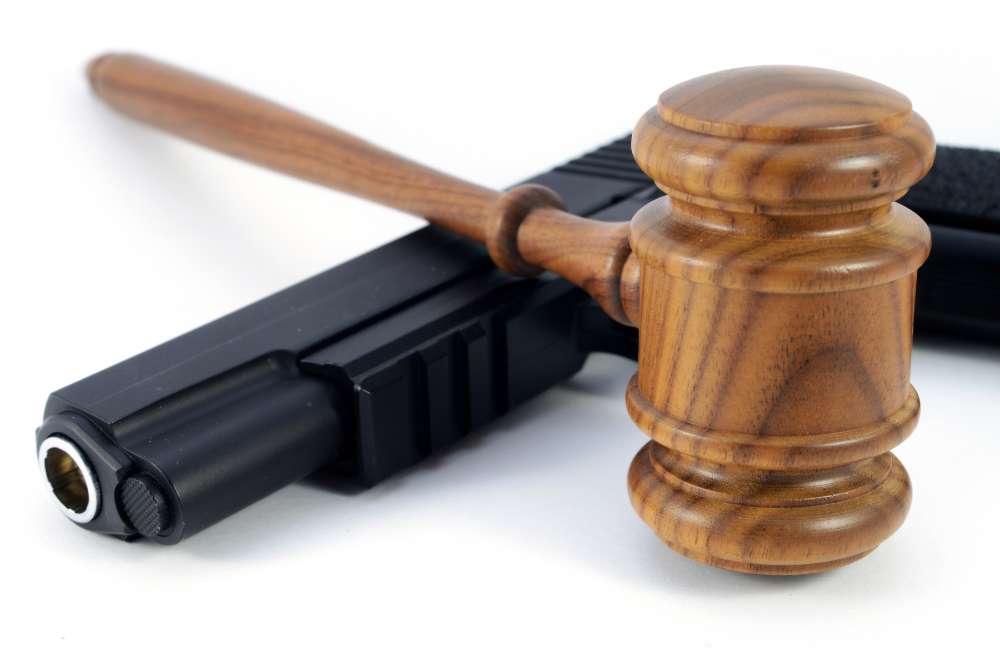Ohio Gun Laws 2024: Your Rights, Responsibilities, and Restrictions

In 2022, Governor Mike DeWine signed into law Ohio Senate Bill No. 215 – legislation that has made it easier for people to legally carry, possess, or conceal a handgun in the state. This change has added fuel to an already heated debate around firearms.
For gun owners like you, these shifting laws raise a lot of questions. What restrictions have been eased under the new bill? Where exactly can you now carry a concealed weapon? How do you properly transport firearms in a vehicle? Does the law affect background checks or registration requirements?
With so much political rhetoric surrounding SB 215, straight answers seem hard to come by. In this blog, our defense attorneys cut through the noise and give Ohio gun owners the objective information they need to fully understand their rights and stay on the right side of the law.
Ohio’s Expanded Conceal & Carry Laws
Effective June 2022, Ohio adopted a major concealed carry law allowing any “qualifying adult” over 21 without legal firearms prohibitions to conceal a handgun without needing permits, training, or background checks.
While private employers can still ban guns in buildings and company vehicles, they lost the authority to restrict concealed transport by employees with valid licenses. Additionally, immunity clauses now protect employers from liability regarding improperly brought firearms unless they intentionally provoked related injuries.
However, even with this “constitutional carry” law, numerous locations limit concealed weapons. Carrying secretly into these zones stays illegal and can mean felony charges:
- Police stations
- Government buildings
- Mental health facilities
- Airports past security
- Schools and school areas
School carry proves complex even for licensed owners. Firearms cannot leave vehicles within 1000-foot premises perimeters.
Bottom line — the new law does not make concealed carry legal everywhere. Ohioans need to fully know places that are still off-limits before concealing firearms. Stay aware, or you could face major penalties for accidentally carrying into banned zones. Rights come with responsibilities.
Registering and Licensing Firearms in Ohio
Ohio does not have any laws requiring the registration of firearms.
Under Ohio Revised Code 9.68, the state prohibits local city and county governments from instituting any form of gun or firearm registry that would contradict state law. Registries essentially create a centralized list linking gun ownership details to individuals.
Currently, the only exception in Ohio relates to the ownership of National Firearms Act (NFA) regulated weapons, such as fully automatic firearms, short-barreled rifles, and suppressors. These specific classes of weapons do require registration in accordance with Federal statutes through the ATF.
Ohio Gun Background Checks
Under federal law, licensed firearms dealers are required to perform background checks prior to the sale of a firearm to check for prohibited purchasers. However, federal law does not require unlicensed private sellers to conduct such checks.
States can opt to become “points of contact” to run firearm background checks using both federal and state databases. However, Ohio is not currently a point of contact state.
As a result, firearms background checks in Ohio proceed as follows:
- Licensed gun dealers must initiate background checks by directly contacting the FBI’s National Instant Criminal Background Check System (NICS) when selling firearms. They cannot transfer guns without completing this federal check.
- Private gun sellers in Ohio are not required under current state law to conduct any kind of buyer background check before transferring firearms.
So in summary, Ohio does not mandate background checks beyond what federal law stipulates for licensed dealers. Only sales by licensed firearm businesses require the standard FBI checks. Private gun transfers currently occur in the state without any background inquiry due to state law not imposing a universal background check requirement.
Firearm Storage Laws in Ohio
When it comes to keeping unattended guns securely stored from unauthorized access, Ohio currently has no statewide legal requirements mandating specific precautions by gun owners.
Ohio does not have child access prevention laws regarding firearms. The state imposes no penalty for failing to safely store a gun that is then accessed and used by an unsupervised minor. There is no criminal liability for negligent firearm storage.
Additionally, there are no Ohio laws mandating guns be stored in locked containers, with gun locks, or otherwise be safely and securely inaccessible to prohibited persons. Gun owners are not legally obligated to use any protective devices or storage methods.
The only existing regulation is that federally licensed firearms dealers must offer locking devices for sale with any firearm purchase. However, the use of locking mechanisms is voluntary for private owners per state law.
Persons Prohibited From Possessing Firearms in Ohio
Ohio state law lays out categories of persons who are prohibited from purchasing or possessing firearms. It is important for all gun owners and sellers to understand these restrictions.
The following individuals are barred from owning or controlling guns in Ohio:
- Fugitives from justice or those with an outstanding arrest warrant
- Anyone convicted of or indicted for a felony-level violent crime
- Anyone convicted of or indicted for a felony drug offense
- Those found to be drug dependent, dangerous drug abusers, or chronic alcoholics
- Anyone ruled mentally incompetent or involuntarily committed to a mental institution
- People subject to court orders declaring them mentally ill
This list encompasses those who, through due process of law, have demonstrated conduct, making them unqualified to legally take possession of firearms. Private sellers must refrain from transferring guns to anyone they have reasonable cause to believe falls under these prohibitions. Licensed dealers are likewise barred from furnishing firearms to such prohibited purchasers.
Transporting Firearms in Ohio
Under Revised Code Section 2923.16, firearms cannot be accessible to the driver or passengers in a vehicle without proper encasement or securing. Failure to adhere to the rules can constitute a criminal offense.
It is illegal in Ohio to knowingly transport a loaded handgun in a vehicle if:
- The person is intoxicated or has prohibited blood alcohol or drug levels
- The gun is transported in a manner readily accessible without exiting the vehicle
In general, transporting a firearm in a motor vehicle requires:
- An unloaded firearm placed in a closed case, box, or other sealed package
- An unloaded gun locked in the vehicle’s trunk or storage compartment
- An unloaded and clearly visible firearm that is secured in a mounting rack
There are exceptions, such as for authorized concealed carry license holders transporting handguns. But in general, firearms should not be directly accessible during transport. Gun owners should familiarize themselves with all relevant laws before traveling with firearms. Failure to properly understand and follow the legal protocols can lead to criminal penalties.
Facing Weapons Charges in Cuyahoga County?
Navigating Ohio’s gun laws can be complex due to the intermingling of state and federal regulations. Understanding these laws is not only a responsibility but also an essential factor in ensuring personal safety and compliance. Remember, ignorance of the law is not a valid defense in court.
While this guide offers a concrete overview, it can’t substitute for professional legal advice. If you’re unsure about any aspect of these laws, or if you face legal issues related to firearms in Ohio, obtaining advice from an experienced attorney is strongly recommended.
At Botnick Law Firm, our experienced weapon charges lawyers focus on cases related to firearm laws. We understand the intricacies of state and federal regulations and can help you safeguard your rights. Contact us today for a consultation, and let us guide you through the complexities of Ohio’s gun laws.



